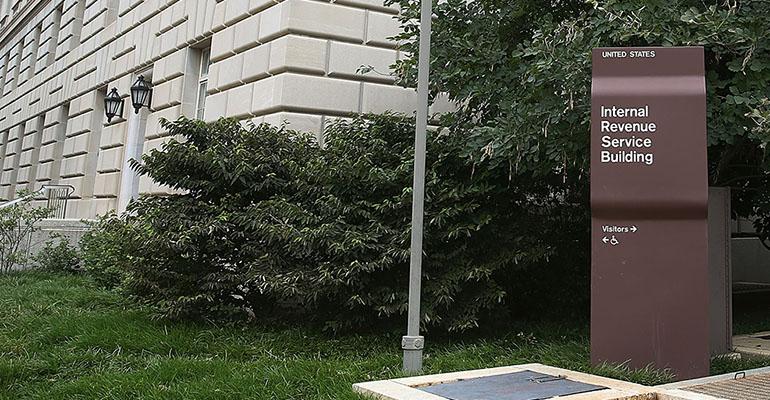In Private Letter Ruling 201731005 (released Aug. 4, 2017), the Internal Revenue Service held that a taxpayer substantially complied with the requirements of the Internal Revenue Code to allocate a generation-skipping transfer (GST) tax exemption to an indirect skip.
A husband created and funded an irrevocable trust for his descendants’ benefit. In the year he created the trust, he and his wife hired an attorney to prepare Forms 709 (U.S. Gift (and Generation-Skipping Transfer) Tax Returns). Each spouse treated the transfer to the trust as having been made one-half by each of them. The husband elected out of the automatic allocation rules with respect to his gift to the trust; the attorney reported the husband’s transfer to trust as an indirect skip on Schedule A, Part 3 and allocated GST tax exemption to the transfer on Schedule D. The attorney, however, didn’t attach a notice of allocation for the transfer.
The taxpayer asked the IRS to determine whether there was substantial compliance with the requirements for making an allocation of GST tax exemption to the transfer to trust. The IRS ruled that the taxpayer did substantially comply and thus allocated the exemption to the husband’s transfer to the irrevocable trust.
Electing Out
IRC Section 2501(a)(1) imposes a tax on property transferred by gift. This tax applies even if the transfer is made in trust. IRC Section 2601 imposes a tax on every GST, which is defined as a taxable distribution, a taxable termination or a direct skip. IRC Section 2632(c) provides that if an individual makes an indirect skip during his lifetime, any unused portion of his GST tax exemption shall be allocated to the property transferred to the extent necessary to make the inclusion ratio for such property zero. If the amount of the indirect skip exceeds such unused portion, the entire unused portion shall be allocated to the property transferred.
Under Treasury Regulations Section 26.2632-1(b)(2)(iii)(A), a transferor may prevent the automatic allocation of GST tax exemption (elect out) with respect to a prior year transfer made by him to a trust or to a current year transfer made by him to a trust. Under Treas. Regs. Section 26.2632-1(b)(2)(iii)(B), to elect out, the transferor must attach an election out statement to a Form 709 filed within the time period provided in Treas. Regs. Section 26.2632-1(b)(2)(iii)(C). The election out statement must identify the trust and specifically, must provide that the transferor is electing out of the automatic allocation of GST tax exemption with respect to the transfer.
In the instant case, the husband elected out of the automatic allocation rules for the year he created the trust. However, he could still allocate GST tax exemption to that year’s transfer by properly reporting the allocation on a timely filed Form 709, which he did. However, the husband’s attorney failed to attach a Notice of Allocation in accordance with the instructions for Form 709.
Compliance
Although the husband didn’t “literally” comply with the instructions to Form 709 or to the requirements in the Treasury regulations for allocating GST tax exemption to an indirect skip, the IRS found:
… literal compliance with the procedural instructions to make an election is not always required. Elections may be treated as effective where the taxpayer complied with the essential requirements of a regulation (or the instructions to the applicable form) even though the taxpayer failed to comply with certain procedural directions therein. See Hewlett-Packard Company v. Commissioner, 67 T.C. 736, 748 (1977), acq. in result, 1979-1 C.B. 1.
Noting that the husband’s election didn’t strictly comply with the required procedures, the IRS nonetheless ruled that an election will still be valid “if the information on the return is sufficient to indicate that the personal representative intended to make the election.”
Turning to the facts and representations made in the case, the IRS concluded that the Form 709 contained sufficient information to constitute substantial compliance with the requirements of Section 2632(c) to allocate GST tax exemption to an indirect skip. The IRS therefore ruled that the husband allocated GST tax exemption to the transfer to trust.





